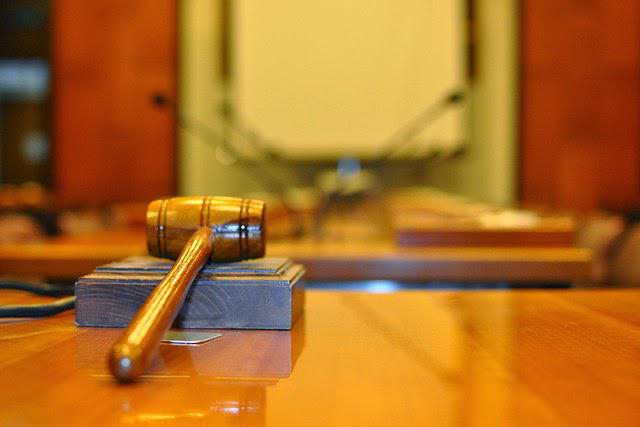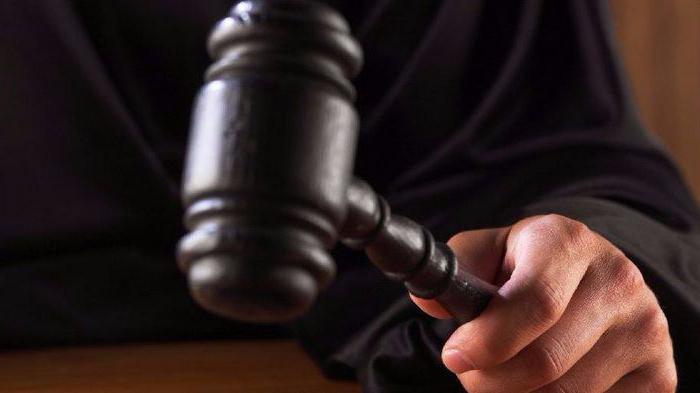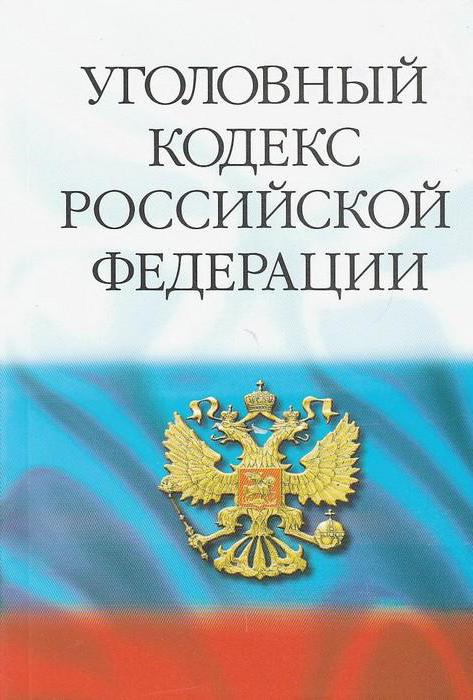For a fairly long period, discussions have been held on retroactive effect of the criminal law and its scope. This issue is subject to regulation of various norms. One of them is article 54 of the Constitution. Its provisions are specified in Art. 10 of the Criminal Code. This norm, in turn, establishes the principle that is considered an exception to the rules enshrined in Article 9 of the Code. We learn from the articlewhether criminal law retroactive.

54 article of the Constitution
If the law establishes or aggravates liability, it has no retroactive effect.
No person shall be sanctioned for an act that is not recognized as an offense at the time of the commission. If after an event the responsibility for an unlawful act is mitigated or eliminated, the new law is subject to application.
Art. 10 of the Criminal Code
A legislative act that eliminates the crime of the deed, mitigates the responsibility or improves the situation of the subject in another way, is retroactive. In other words, it applies to citizens who committed an act before it was acquired by the provisions of legal force, including those serving criminal penalty or having served it, but having a criminal record.
The law that establishes the crime of an act, tightens liability or worsens the position of a citizen in another way, is not retroactive.
If the regulation softens criminal penalty, it is subject to reduction to the extent provided for by the new law.
Explanations
Norms about retroactive criminal law are based on the provisions of paragraph 2 of clause 11 of the Universal Declaration of 1948, Art. 7 of the Convention of 1950, paragraph 1 of Art. 35 of the Declaration of 1991. Their constitutional and legal interpretation is contained in some decisions of the Constitutional Court, which are generally binding throughout Russia.

Principle retroactive criminal law formulated as imperative. It is addressed, first of all, to the state on behalf of which various bodies and structures, including courts, are called upon to ensure the implementation of the guarantees enshrined in the Constitution.
Legal requirements
According to Part 2 of Article 10 of the Criminal Code, when a conviction is brought into line with the provisions of the new law, all its rules are subject to application: both general and special. In this case, the stage at which this action is carried out does not matter.
Compliance with these rules ensures the implementation of the principles of equality of subjects before the law and fair trial.
Key characteristics of the principle
In the framework of scientific and practical interpretation retroactive criminal law a number of features of this principle can be distinguished. This is a legal phenomenon:
- It has international legal and constitutional foundations for the level of guarantee of freedoms and human and civil rights that form the basis of the legal status of an individual, the restriction of which is unacceptable.
- It is connected with all principles of legal proceedings, especially the equality of subjects before the law and justice. It relates to the Special and General Parts of the Criminal Code, transitional provisions governing the order of enforcement of laws. Problem retroactive law in criminal law permeates almost all of its institutions and norms: from the removal and repayment of a criminal record to criminalization.
The principle enshrined in Article 10 of the Criminal Code is applied in appropriate criminal procedure forms at all stages of the proceedings, regardless of the will and petition of the applicant.At the same time, the procedure for the operation of the law in time corresponds with the provisions on the operation of other sectoral legal acts, including taking into account the blank form (referral nature) of certain norms of the Criminal Code.

Regulation Features
Provisions for retroactive criminal laware politically and historically volatile. In domestic practice, this issue was resolved in different ways at different historical stages.
An approach different from the modern one, in particular, was used in the Criminal Code of the RSFSR, as well as the Model Criminal Code for the CIS member states, transitional provisions of the Code of 1996. Accordingly, for example, new Federal Laws No. 18 and No. 14 of 2012, reinforcing responsibility for infringement of sexual integrity of minors and crimes in the field of drug trafficking, they cannot have retroactive effect. This requirement is mandatory in the constitutional and international legal sense.
Important point
The provisions enshrined in Article 10 of the Criminal Code are exceptions and should remain so. The social and legal practice of implementing incentive measures, including retroactive force and amnesty, cannot be of a mass nature.
The value, expediency and effectiveness of criminal law institutions are far from always determined by the prevalence of their application.
Margin of appreciation
Many experts who analyze examples of the retroactive effect of criminal law and the application of the provisions of article 10 of the Criminal Code relate to the issue of discretion. It is associated with the correlation of discretionary and imperative elements of a court decision, the allocation of factors that narrow or, on the contrary, expand the scope of choice.

The criminal law basis of the margin of appreciation forms about 100 restrictions enshrined in the Special and in the General Part. In addition, there are legal proceedings and other restrictions.
Discretion is considered a necessary element of any judicial system. It is recognized as a non-alternative imperative function of authorities based on recommendatory and mandatory domestic and international norms, laws of thinking.
Conditions of use
The retroactive effect of a legislative act as excluding crime takes place if:
- The act is completely decriminalized.
- The age of responsibility increases or the list of crimes for which a sanction is imposed for a person who has reached a specific age is reduced.
- Limits the number of entities found guilty of assault.
- More widely interprets the concept of insanity (for example, in 3 parts 20 of the article of the Criminal Code there is the term "age insanity").

- Reduces the number of crime items. For example, Federal Law No. 162 of 2003 and Federal Law No. 73 of 2004 excluded smooth-bore civilian firearms, as well as its main elements and ammunition from 222 norms of the Criminal Code; Article 135 of the Code (in the first edition) established liability for committing depraved acts only with respect to 14-year-olds, and not in general minors, as previously provided.
- Narrows the spatial boundaries of the scene of the act.
- Excludes any alternative form of criminal activity or method of committing an act. For example, Federal Law No. 162, the unlawful carrying / acquiring of cold weapons (including missile weapons) and gas weapons was decriminalized.
- Eliminates any alternative consequences from the material composition. For example, the same Federal Law No. 162 abolished the provisions on moderate harm in norms 266-269, 264, 216, etc.
- Excludes one form of guilt, alternative motive or purpose of the act.
Decriminalization
It may be partial or complete. Decriminalization can be carried out by changing the provisions of the norms of not only the Special, but also the General part.For example, new circumstances may be introduced that exclude the criminality of a person’s behavior, narrow the concept of complicity, limit liability for preparing for a crime or incomplete assault.

Decriminalization can also be carried out by:
- cancellation of requirements of another industry affiliation referred to in the blanket norm;
- limiting the scope of regulation of criminal norms due to the recognition of the act as not posing a danger to society and, therefore, entailing administrative or other milder sanctions.
Partial decriminalization can occur when the signs of composition are reduced or the blanket disposition of the norm is maintained unchanged when adjusting positive legislation, the violation of which provided for criminal punishment.

The Plenum of the Armed Forces clarified this in the Decree No. 23 of 2004. The Court indicated that if the Federal Law is excluded from the list of activities that can be conducted only with special permission, the corresponding type is excluded, the actions of the entity involved in it do not show signs of composition, enshrined in article 171 of the Criminal Code
Conclusion
The exclusion of a special norm from the Criminal Code does not in itself preclude the possibility of holding a person liable for a crime that it provided for. Punishment may be imputed to the subject, but according to the article of the Code, containing general provisions and, therefore, covering the relevant act.